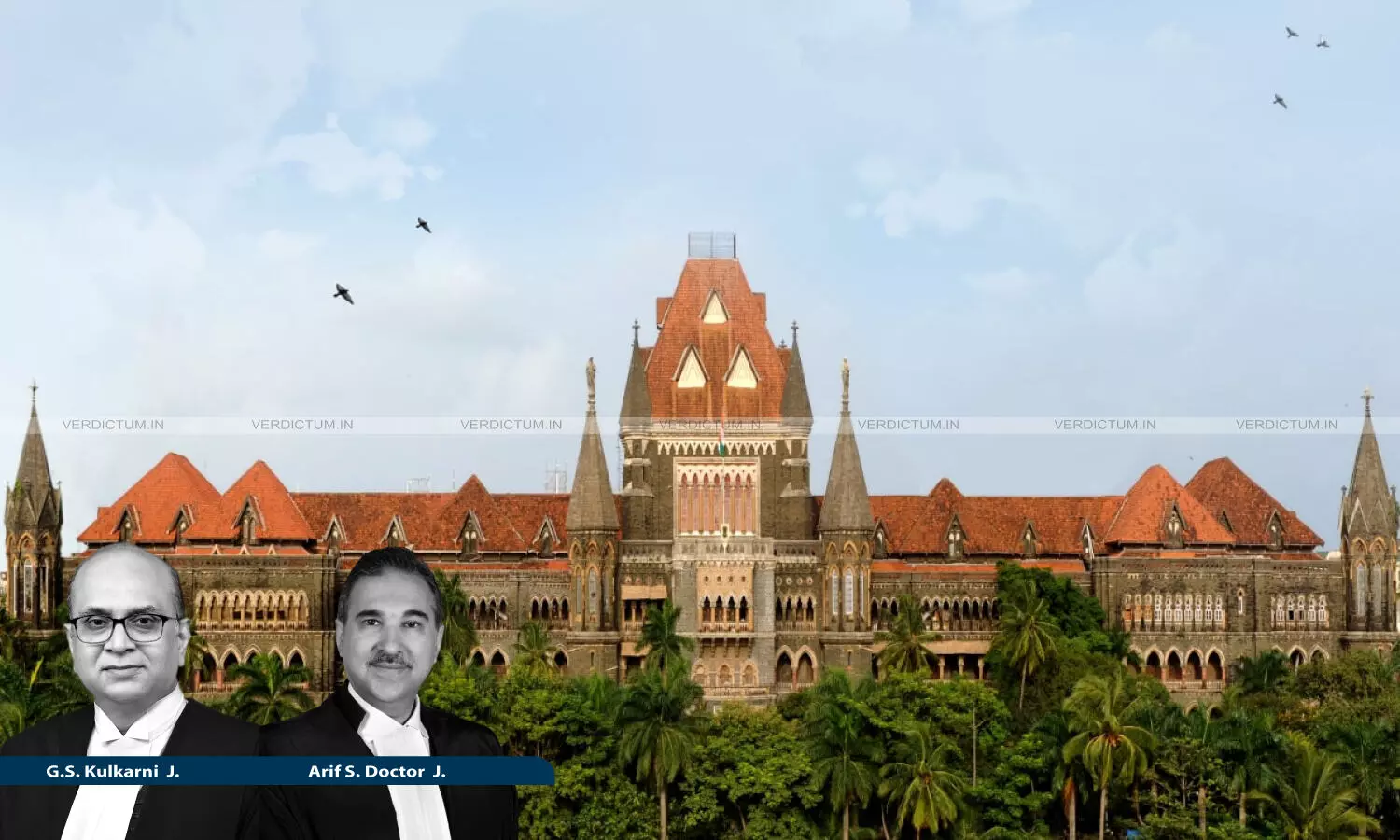
Justice G.S. Kulkarni, Justice Arif S. Doctor, Bombay High Court
Slum Rehabilitation Projects Often Delayed Due To Competing Interests Of Rival Developers: Bombay High Court Directs Smooth Implementation Of Scheme
 |
|The Bombay High Court noted that the Slums Act is a welfare legislation enacted to improve the living conditions of persons compelled to reside in slums, in poverty, filth and squalor.
The Bombay High Court while directing smooth implementation of the Slum Rehabilitation Scheme (SRS), remarked that the slum rehabilitation projects are often delayed due to competing interests of rival developers.
The Court remarked thus in Writ Petitions filed by some entities against Minister of State, Home (Rural) Housing School Education Co-operative Mining Department.
A Division Bench of Justice G.S. Kulkarni and Justice Arif S. Doctor observed, “It pains us to note that despite the above observations, the position is no different today, as is borne out by the conduct of Respondent No. 2 in the facts of the present case. We must most regrettably note that in case after case the Respondent Authorities, and in particular Respondent No. 2, seemingly forget and/or overlook the very object for which the Slums Act was enacted and continue to act in the interest of developers, and hence slum rehabilitation projects are often delayed solely due to competing interests of rival developers.”
The Bench said that Slums Act is a welfare legislation enacted to improve the living conditions of persons compelled to reside in slums, in poverty, filth and squalor and its primary object is to ensure that slum dwellers are protected from eviction without rehabilitation and are provided with decent, secure, and hygienic housing/living conditions.
Senior Advocate A.Y. Sakhare and Advocate Mayur Khandeparkar represented the Petitioners while Senior Advocate Milind Sathe and Advocate Reena Salunke represented the Respondents. Senior Advocate P.K. Dhakephalkar represented the Intervenors.
Brief Facts
In the lead case, the Petitioner was appointed as the Developer by the Respondent society of slum dwellers for the redevelopment of a plot of land situated in Mumbai under an SRS. Thereafter, the Petitioner submitted a proposal for redevelopment in compliance with a circular issued by the Slum Rehabilitation Authority (SRA), and the Development Control and Promotion Regulations (DCPR) 2034 for the redevelopment of the original Plot. Then the Petitioner submitted a draft Annexure II of the occupants of the Plot to SRA, who sent the same to the MCGM for verification and certification. The draft Annexure II was duly verified by the AMC & CA, K/East ward, and forwarded to SRA.
Vide an administrative order, the SRA accepted the slum rehabilitation proposal submitted by the Petitioner on the condition that it also accommodates and rehabilitates the occupants of DP Road Plot into SRS as “persons affected by the project”, i.e., PAP’s. A local MLA (Member of Legislative Assembly) and rival builders or developers allegedly tried to stop the project. A few residents objected, saying that the developer did not follow the rules. The Apex Grievance Redressal Committee (AGRC) quashed the developer’s permission and allowed the application of slum dwellers. However, the High Court and Supreme Court allowed the project to continue. Still, there were delays and hence, the matter was before the High Court.
Reasoning
The High Court in the above regard, noted, “After having heard Learned Counsel and having considered the rival contentions, we have no hesitation in holding that the present Writ Petition deserves to be allowed.”
The Court reiterated that slum rehabilitation schemes are not ordinary real estate projects, but they involve a public purpose, the primary beneficiaries of which are the slum dwellers and not developers.
“In the present case, there is and can be no dispute that the Petitioner’s initial proposal regarding the redevelopment of the Original Plot had been accepted by the Respondent Authorities and that the Petitioner had been granted a valid and subsisting LOI and IOA in respect thereof. The grant of the said LOI and IOA in favour of the Petitioner has been expressly upheld by the Order of this Court dated 2nd April 2024 and also confirmed by the Order of the Hon'ble Supreme Court dated 13th May 2024”, it further noted.
The Court remarked that the issuance of the letter by SRA is surprising and lends credence to the Petitioners' contention that SRA is not acting in faithful discharge of its statutory duties but in a manner so as to stymie the said slum scheme.
“Respondent No. 2, being a statutory authority, is required to discharge such duty so as to ensure that the said slum rehabilitation scheme was expeditiously proceeded with and the object of the Slums Act was best achieved. However, as already noted above, Respondent No. 2 has regrettably not done so. It would indeed reflect a most sorry state of affairs when any statutory authority abdicates its statutory duties on account of any extraneous or extrajudicial intervention and conducts itself in a manner which is contrary to the very Statute under which such Statutory Authority is required to discharge its duties, which is clearly what Respondent No. 2 appears to have done in the present case”, it added.
The Court was of the view that the Applicants cannot, in these proceedings, be granted the substantive relief that they seek and thus, the remedy of the Applicants, if any, would lie elsewhere.
“The Respondents are directed to take all necessary steps, including executing eviction orders, for the smooth implementation of the Petitioner’s slum rehabilitation scheme”, it directed and concluded.
Accordingly, the High Court allowed the Writ Petitions and issued necessary directions.
Cause Title- Shree Gurukrupa SRA Co-op Hsg Sty v. Minister of State, Home (Rural) Housing School Education Co-operative Mining Department & Ors. (Neutral Citation: 2025:BHC-OS:14013-DB)